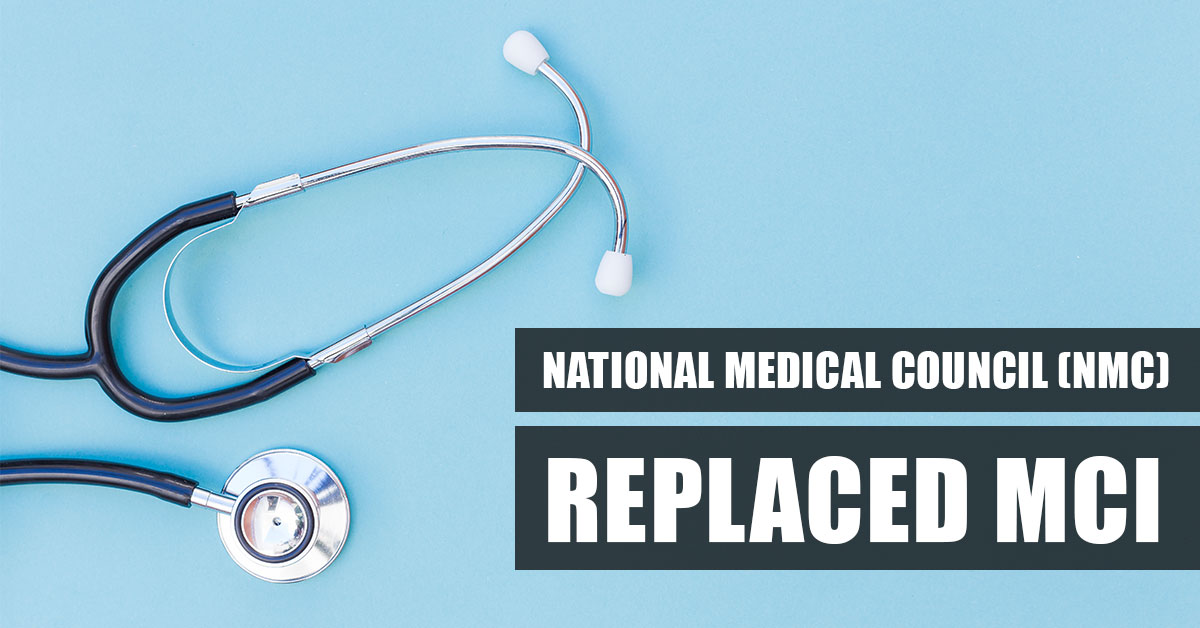The National Medical Commission (NMC) bill was proposed with an aim to overhaul the medical education regulation system of the country. The bill was made to replace the Medical Council of India.
The National Medical Commission was a government’s move to bring reforms in the medical education sector in India.
On September 25, 2020, the government announced the immediate implementation of the National Medical Council (NMC) as a new body that will function as the country’s top regulator of medical education. This announcement was made after the Center dissolved the Board of Governors-Medical Council of India (BoG-MCI), a body that functioned under the Indian Medical Council (IMC) Act, 1956, that replaced MCI in 2018.
According to the gazette notification issued by the Union Ministry of Health and Family Welfare (MoH&FW), “Indian Medical Council Act, 1956 (102 of 1956) is hereby repealed with effect from September 25. The BoG appointed under section 3A of the Indian Medical Council Act, 1956 (102 of 1956) in supersession of the MCI constituted under sub-section (1) of section 3 of the said Act shall stand dissolved,”
The Appointments Committee of Cabinet (ACC) has appointed Professor Suresh Chandra Sharma, former Head of Ear Nose Throat (ENT) Department of All India Institute of Medical Sciences (AIIMS), New Delhi, as the Chairman of the NMC. They have also appointed Dr. Rakesh Kumar Vats, Secretary-General of BoG-MCI, as the Secretary of the NMC.
Under the NMC, there will be four separate autonomous boards: Under-graduate Medical Education, Post-Graduate Medical Education, Medical Assessment and rating, Ethics, and Medical registration.
Through this change in the medical education regulator, we also came to know that the common final year Bachelor of Medicine and Bachelor of Surgery (MBBS) examination will be known as the National Exit Test (NEXT). It will act as the licentiate examination to practice medicine in India.
The new regulator will have the authority to make guidelines for a new cadre of Non-MBBS mid-level health service providers such as nursing practitioners and pharmacists in the country with certain and limited rights.
The introduction of NMC is to ensure a uniform standard in the medical education sector in India. It will also ensure transparency, accountability, and quality in the governance of medical education in the country. It will be accountable to lessen the burden on students while increasing the number of medical seats and thus will reduce the cost of medical education in the country. All these parameters will ensure that more talented youth can take up medicine as a profession which will ultimately increase the number of medical professionals in the country. As a result in the years to come, the wide gap between the demand for healthcare services in remote areas will be filled.




